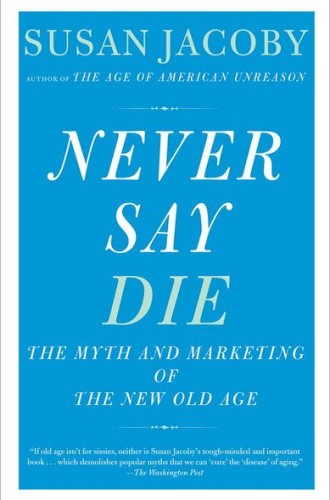Never Say Die, by Susan Jacoby
Susan Jacoby is an important truth teller who, in a series of books, has addressed key critical issues in our society. She brings great candor and moral passion to her accessible, journalistic narrative writing, which combines careful research, anecdotal material and her own experience. In this book she takes up the social construction of old age. The core idea, developed in many directions, is that old age is real and inescapable, that for many people it is dreadful and that it cannot be resisted by the illusions of our society.
Jacoby contends that our society is engaged in willful denial about old age. Relying on narrative accounts of unusual persons, we characterize old age as a time that offers the prospect of well-being, happiness and an extended season of fulfilled, satisfied living, but it is not that way for most people. Jacoby’s book penetrates the illusion and honestly addresses the dismal prospects of aging people—prospects that have important policy implications.
Her particular target is the boomer population, which she divides between “early boomers” and the “later boomers,” who have different agendas. The boomers feel entitled, she argues, not only to get it all and to get it all now, but to continue with uninterrupted flourishing and well-being into old age. Such a prospect is a myth that is enhanced and reinforced by the marketing of products that are said to fend off the erosions of old age.





